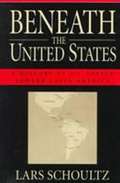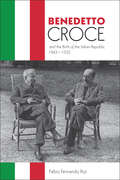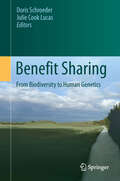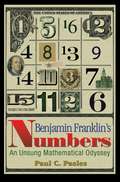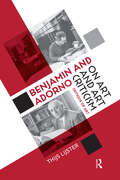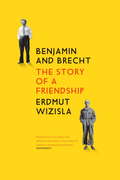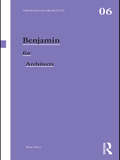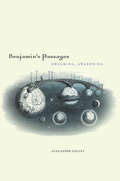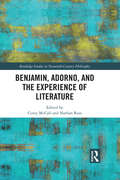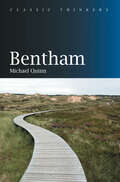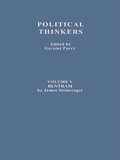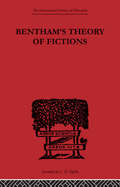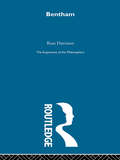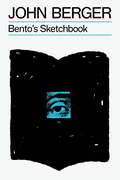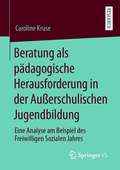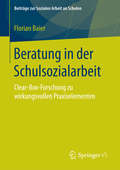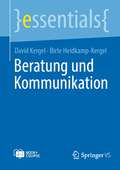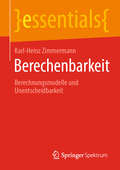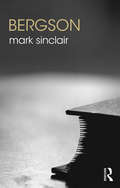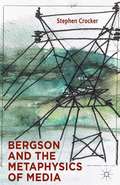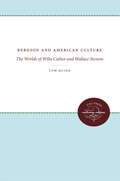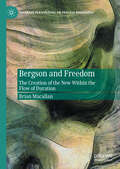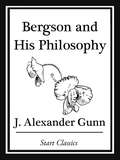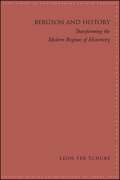- Table View
- List View
Beneath the United States: A History of U. S. Policy Toward Latin America
by Lars Schoultz<p>In this sweeping history of United States policy toward Latin America, Lars Schoultz shows that the United States has always perceived Latin America as a fundamentally inferior neighbor, unable to manage its affairs and stubbornly underdeveloped. <p>This perception of inferiority was apparent from the beginning. John Quincy Adams, who first established diplomatic relations with Latin America, believed that Hispanics were "lazy, dirty, nasty...a parcel of hogs." In the early nineteenth century, ex-President John Adams declared that any effort to implant democracy in Latin America was "as absurd as similar plans would be to establish democracies among the birds, beasts, and fishes." <p>Drawing on extraordinarily rich archival sources, Schoultz, one of the country's foremost Latin America scholars, shows how these core beliefs have not changed for two centuries. We have combined self-interest with a "civilizing mission"--a self-abnegating effort by a superior people to help a substandard civilization overcome its defects. William Howard Taft felt the way to accomplish this task was "to knock their heads together until they should maintain peace," while in 1959 CIA Director Allen Dulles warned that "the new Cuban officials had to be treated more or less like children." Schoultz shows that the policies pursued reflected these deeply held convictions. <p>While political correctness censors the expression of such sentiments today, the actions of the United States continue to assume the political and cultural inferiority of Latin America. Schoultz demonstrates that not until the United States perceives its southern neighbors as equals can it anticipate a constructive hemispheric alliance.</p>
Benedetto Croce and the Birth of the Italian Republic, 1943–1952 (Toronto Italian Studies)
by Fabio RiziAs president of the Italian Liberal Party, Benedetto Croce was one of the most influential intellectuals involved in Italian public affairs after the fall of Mussolini. Placing Croce at the centre of historical events between 1943 and 1952, this book details his participation in Italy’s political life, and his major contributions to the rebirth of Italian democracy. Drawing on a great amount of primary material, including Croce’s political speeches, correspondences, diaries, and official documents from post-war Italy, this book illuminates the dynamic and progressive nature of Croce’s liberalism and the shortcomings of the old Liberal leaders. Providing a year-by-year account of Croce’s initiatives, author Fabio Fernando Rizi fills the gap in Croce’s biography, covering aspects of his public life often neglected, misinterpreted, or altogether ignored, and restores his standing among the founding fathers of modern Italy.
Benefit Sharing: From Biodiversity to Human Genetics
by Doris Schroeder Julie Cook LucasBiomedical research is increasingly carried out in low- and middle-income countries. International consensus has largely been achieved around the importance of valid consent and protecting research participants from harm. But what are the responsibilities of researchers and funders to share the benefits of their research with research participants and their communities? After setting out the legal, ethical and conceptual frameworks for benefit sharing, this collection analyses seven historical cases to identify the ethical and policy challenges that arise in relation to benefit sharing. A series of recommendations address possible ways forward to achieve justice for research participants in low- and middle-income countries.
Benjamin Franklin's Numbers: An Unsung Mathematical Odyssey
by Paul C. PaslesFew American lives have been as celebrated--or as closely scrutinized--as that of Benjamin Franklin. Yet until now Franklin's biographers have downplayed his interest in mathematics, at best portraying it as the idle musings of a brilliant and ever-restless mind. In Benjamin Franklin's Numbers, Paul Pasles reveals a side of the iconic statesman, scientist, and writer that few Americans know--his mathematical side. In fact, Franklin indulged in many areas of mathematics, including number theory, geometry, statistics, and economics. In this generously illustrated book, Pasles gives us the first mathematical biography of Benjamin Franklin. He draws upon previously unknown sources to illustrate Franklin's genius for numbers as never before. Magic squares and circles were a lifelong fascination of Franklin's. Here, for the first time, Pasles gathers every one of these marvelous creations together in one place. He explains the mathematics behind them and Franklin's hugely popular Poor Richard's Almanac, which featured such things as population estimates and a host of mathematical digressions. Pasles even includes optional math problems that challenge readers to match wits with the bespectacled Founding Father himself. Written for a general audience, this book assumes no technical skills beyond basic arithmetic. Benjamin Franklin's Numbers is a delightful blend of biography, history, and popular mathematics. If you think you already know Franklin's story, this entertaining and richly detailed book will make you think again.
Benjamin and Adorno on Art and Art Criticism: Critique of Art
by Thijs LijsterThis book brings together two of the most important figures of twentieth-century criticism, Walter Benjamin and Theodor Adorno, to consider a topic that was central to their thinking: the place of and reason for art in society and culture. Thijs Lijster takes us through points of agreement and disagreement between the two on such key topics as the relationship between art and historical experience, between avant-garde art and mass culture, and between the intellectual and the public. He also addresses the continuing relevance of Benjamin and Adorno to ongoing debates in contemporary aesthetics, such as the end of art, the historical meaning of art, and the role of the critic.
Benjamin and Brecht: The Story of a Friendship
by Christine Shuttleworth Erdmut WizislaA fascinating account of the friendship between two of the most brilliant minds of the twentieth centuryGermany in the mid 1920s, a place and time of looming turmoil, brought together Walter Benjamin--acclaimed critic and extraordinary literary theorist--and Bertolt Brecht, one of the twentieth century's most influential playwrights. It was a friendship that would shape their writing for the rest of their lives.In this groundbreaking work, Erdmut Wizisla explores what this relationship meant for them personally and professionally, as well as the effect it had on those around them. From the first meeting between Benjamin and Brecht to their experiences in exile, these eventful lives are illuminated by personal correspondence, journal entries and private miscellany--including previously unpublished materials--detailing the friends' electric discussions of their collaboration. Wizisla delves into the archives of other luminaries in the distinguished constellation of writers and artists in Weimar Germany, which included Margarete Steffin, Theodor Adorno, Ernst Bloch and Hannah Arendt. Wizisla's account of this friendship opens a window on nearly two decades of European intellectual life.From the Trade Paperback edition.
Benjamin for Architects (Thinkers for Architects)
by Brian ElliottWalter Benjamin has become a decisive reference point for a whole range of critical disciplines, as he constructed a unique and provocative synthesis of aesthetics, politics and philosophy. Examining Benjamin’s contributions to cultural criticism in relation to the works of Max Ernst, Adolf Loos, Le Corbusier and Sigfried Giedion, this book also situates Benjamin’s work within more recent developments in architecture and urbanism. This is a concise, coherent account of the relevance of Walter Benjamin’s writings to architects, locating Benjamin’s critical work within the context of contemporary architecture and urbanism.
Benjamin's Passages: Dreaming, Awakening
by Alexander GelleyIn transposing the Freudian dream work from the individual subject to the collective, Walter Benjamin projected a “macroscosmic journey” of the individual sleeper to “the dreaming collective, which, through the arcades, communes with its own insides.” Benjamin’s effort to transpose the dream phenomenon to the history of a collective remained fragmentary, though it underlies the principle of retrograde temporality, which, it is argued, is central to his idea of history.The “passages” are not just the Paris arcades: They refer also to Benjamin’s effort to negotiate the labyrinth of his work and thought. Gelley works through many of Benjamin’s later works and examines important critical questions: the interplay of aesthetics and politics, the genre of The Arcades Project, citation, language, messianism, aura, and the motifs of memory, the crowd, and awakening.For Benjamin, memory is not only antiquarian; it functions as a solicitation, a call to a collectivity to come. Gelley reads this call in the motif of awakening, which conveys a qualified but crucial performative intention of Benjamin’s undertaking.
Benjamin, Adorno, and the Experience of Literature (Routledge Studies in Twentieth-Century Philosophy)
by Nathan Ross Corey McCallThis collection features original essays that examine Walter Benjamin’s and Theodor Adorno’s essays and correspondence on literature. Taken together, the essays present the view that these two monumental figures of 20th-century philosophy were not simply philosophers who wrote about literature, but that they developed their philosophies in and through their encounters with literature. Benjamin, Adorno, and the Experience of Literature is divided into three thematic sections. The first section contains essays that directly demonstrate the ways in which literature enriched the thinking of Benjamin and Adorno. It explores themes that are recognized to be central to their thinking—mimesis, the critique of historical progress, and the loss and recovery of experience—through their readings of literary authors such as Baudelaire, Beckett, and Proust. The second section continues the trajectory of the first by bringing together four essays on Benjamin’s and Adorno’s reading of Kafka, whose work helped them develop a distinctive critique of and response to capitalism. The third and final section focuses more intently on the question of what it means to gain authentically critical insight into a literary work. The essays examine Benjamin’s response to specific figures, including Georg Büchner, Robert Walser, and Julien Green, whose work he sees as neglected, undigested, or misunderstood. This book offers a unique examination of two pivotal 20th-century philosophers through the lens of their shared experiences with literature. It will appeal to a wide range of scholars across philosophy, literature, and German studies.
Bentham (Classic Thinkers)
by Michael QuinnJeremy Bentham – philosopher, theorist of law and of the art of government – was among the most influential figures of the early nineteenth century, and the approach he pioneered – utilitarianism – remains central to the modern world. In this new introduction to his ideas, Michael Quinn shows how Bentham sought to be an engineer or architect of choices and to illuminate the methods of influencing human conduct to good ends, by focusing on how people react to the various physical, legal, institutional, normative and cultural factors that confront them as decision-makers. Quinn examines how Bentham adopted utility as the critical standard for the development and evaluation of government and public policy, and explains how he sought to apply this principle to a range of areas, from penal law to democratic reform, before concluding with an assessment of his contemporary relevance. He argues that Bentham simultaneously sought both to facilitate the implementation of governmental will and to expose misrule by rendering all exercises of public power transparent to the public on whose behalf it was exercised. This book will be essential reading for any student or scholar of Bentham, as well as those interested in the history of political thought, philosophy, politics, ethics and utilitarianism.
Bentham (Political Thinkers Ser. #Vol. 5)
by James SteintragerFirst published in 1977 this volume challenges the accepted interpretations of Bentham's political thought and in particular the landmark criticism by John Stuart Mill and Elie Halévy, the author consulted the extensive manuscript collections left by Bentham to the University of London and the British museum in the preparation of this volume.
Bentham's Theory of Fictions (International Library of Philosophy #No. 41)
by C.K. OgdenFirst published in 2000. Routledge is an imprint of Taylor & Francis, an informa company.
Bentham's Theory of Law and Public Opinion
by Xiaobo Zhai Michael QuinnThis collection represents the latest research from leading scholars whose work has helped to frame our understanding of Bentham since the publication of H. L. A. Hart's Essays on Bentham. The authors explore fundamental areas of Bentham's thought, including the relationship between the rule of law and public opinion; law and popular prejudices or manipulated tastes; Bentham's methodology versus Hart's; sovereignty and codification; and the language of natural rights. Drawing on original manuscripts and volumes in The Collected Works of Jeremy Bentham, the chapters combine philosophical and historical approaches and offer new and more faithful interpretations of Bentham's legal philosophy and its development. As a coherent whole, the book challenges the dominant understandings of Bentham among legal philosophers and rescues him from some famous mischaracterizations.
Bentham-Arg Philosophers (Arguments Of The Philosophers Ser.)
by Ross HarrisonFirst Published in 1999. Routledge is an imprint of Taylor & Francis, an informa company.
Bento's Sketchbook
by John BergerA deeply moving exploration of the relationship between thinking and drawing, from the author of the groundbreaking Ways of SeeingThe seventeenth-century philosopher Baruch Spinoza (a.k.a. Bento) spent the most intense years of his short life writing. He also carried with him a sketchbook. After his sudden death, his friends rescued letters, manuscripts, notes—but no drawings.For years, without knowing what its pages might hold, John Berger has imagined finding Bento&’s sketchbook, wanting to see the drawings alongside his surviving words. When one day a friend gave him a beautiful virgin sketchbook, Berger said, &‘This is Bento&’s!&’ and he began to draw, taking inspiration from the philosopher&’s vision.In this beautifully illustrated book, Berger uses the imaginative space opened up in this experiment to explore politics, storytelling, Spinoza&’s life and times, and the process of drawing itself.
Beratung als pädagogische Herausforderung in der Außerschulischen Jugendbildung: Eine Analyse am Beispiel des Freiwilligen Sozialen Jahres
by Caroline KruseBeratung in jugendpädagogischen Handlungsfeldern spielt in der Disziplin Erwachsenenbildung/ Außerschulische Jugendbildung (EB/AJB) eine weitestgehend vernachlässigte Rolle. Insbesondere vor dem Hintergrund des jugendtheoretischen Konsenses über eine Zunahme des Beratungsbedarfs von jungen Menschen beansprucht die Studie von Caroline Kruse, einen professionsorientierten Beitrag zur Profilierung von Beratung in der AJB zu leisten.Das im Rahmen ihrer Untersuchungen aufgenommene empirische Bild der Beratungspraxis im Freiwilligen Sozialen Jahr (FSJ) zeigt: Jugendbildungsreferent*innen werden vermehrt mit beraterischen Anforderungen konfrontiert und aus berufspraktischer Perspektive erfährt Beratung in diesem Handlungsfeld einen deutlichen Bedeutungszuwachs. Die Ergebnisse belegen weiter, dass das FSJ besondere förderliche Rahmenbedingungen aufweist, um auf die (zugenommene) Beratungsbedürftigkeit reagieren zu können. Gleichzeitig fehlt es an institutionellen Anerkennungs- und Unterstützungsformen. Beratung wird damit weitestgehend der individuellen Bereitschaft und des selbst zu verantwortenden Wissens und Könnens der Jugendbildungsreferent*innen überlassen.
Beratung in der Schulsozialarbeit: Clear-Box-Forschung zu wirkungsvollen Praxiselementen (Beiträge zur Sozialen Arbeit an Schulen #6)
by Florian BaierIn diesem Buch wird ein vom Schweizerischen Nationalfonds (SNF) gefördertes Forschungsprojekt vorgestellt, in dem der Frage nachgegangen wurde, wie in Schulsozialarbeit und Jugendarbeit Wirkungen und Nutzen erzeugt werden. Das Projekt wurde als Clear-Box-Forschung konzipiert und in einer Kleinstadt in der Schweiz durchgeführt. Es wurden verschiedene qualitative und quantitative Methoden eingesetzt (Videographie, Interviews, Beobachtungen, standardisierte Befragungen). Die Ergebnisse des Projekts liefern Impulse auf drei Ebenen: erstens leisten sie einen Beitrag zur weiteren Professionalisierung der beiden Handlungsfelder, zweitens tragen die theoretischen Generalisierungen zu einem vertieften Verständnis von Schulsozialarbeit und Jugendarbeit bei und drittens werden forschungsmethodologische und erkenntnistheoretische Herausforderungen der Kombination verschiedener Erhebungsmethoden aufgezeigt.
Beratung und Kommunikation (essentials)
by David Kergel Birte Heidkamp-KergelDer vorliegende Band liefert eine kurze und praxisorientierte Einführung in Beratungs- und Kommunikationsstrategien. Dabei stehen lösungsorientierte Formen der Kommunikation sowie praxisorientierten Übungen im Fokus der Darstellung. So werden v.a. Strategien vermittelt, die ressourcenorientiert die Potenziale und Stärken der Gesprächspartner*innen adressieren. Neben Kommunikationsmodellen zur Konfliktlösung werden daher Beratungsansätze und Fragestrategien praxisorientiert dargestellt, durch die Stärken identifiziert, Ressourcen aktiviert und Wachstumspotenziale freigelegt werden können.Den kostenlosen Zugang zum Online-Kurs finden Sie direkt im Buch.
Berechenbarkeit: Berechnungsmodelle und Unentscheidbarkeit (essentials)
by Karl-Heinz ZimmermannIn diesem essential werden wesentliche Konzepte der Berechenbarkeitstheorie erörtert. Zunächst werden unterschiedliche Modelle der Berechenbarkeit eingeführt und ihre semantische Gleichwertigkeit gezeigt. Dieses Resultat steht in Einklang mit der Church-Turing-These, nach der jede intuitiv berechenbare Funktion partiell-rekursiv ist. Neben zentralen Instrumenten der Berechenbarkeit, wie etwa der Gödelisierung von berechenbaren Funktionen und der Existenz universeller berechenbarer Funktionen, stehen unentscheidbare Probleme im Fokus, wie etwa das Halteproblem sowie das Wortproblem für die Term-Ersetzung. Semi-entscheidbare Mengen werden beleuchtet und die zentralen Sätze von Rice und Rice-Shapiro werden skizziert.
Bergson (The Routledge Philosophers)
by Mark SinclairHenri Bergson (1859-1941) was one of the most celebrated and influential philosophers of the twentieth century. He was awarded in 1928 the Nobel prize for literature for his philosophical work, and his controversial ideas about time, memory and life shaped generations of thinkers, writers and artists. In this clear and engaging introduction, Mark Sinclair examines the full range of Bergson's work. The book sheds new light on familiar aspects of Bergson’s thought, but also examines often ignored aspects of his work, such as his philosophy of art, his philosophy of technology and the relation of his philosophical doctrines to his political commitments. After an illuminating overview of his life and work, chapters are devoted to the following topics: the experience of time as duration the experience of freedom memory mind and body laughter and humour knowledge art and creativity the élan vital as a theory of biological life ethics, religion, war and modern technology With a final chapter on his legacy, Bergson is an outstanding guide to one of the great philosophers. Including chapter summaries, annotated further reading and a glossary, it is essential reading for those interested in metaphysics, time, free will, aesthetics, the philosophy of biology, continental philosophy and the role of European intellectuals in World War I.
Bergson And The Metaphysics Of Media
by Stephen CrockerWhat is a medium? Why is there always a middle? Can media produce 'immediacy'? Henri Bergson recognized mediation as the central philosophical problem of modernity. This book traces his influence on the 'media philosophies' of Gilles Deleuze, Marshall McLuhan, Walter Benjamin and Michel Serres.
Bergson and American Culture: The Worlds of Willa Cather and Wallace Stevens
by Tom QuirkBergsonian "vitalism" challenged the dominance of Spencerian determinism in the early twentieth century and seemed to offer a new foundation for belief in human freedom and individual possibility. Quirk traces the impact of Bergsonism upon the American sensibility and shows how individual writers -- particularly two such different artists as Willa Cather and Wallace Stevens -- appropriated vitalistic notions and made them serve the peculiar requirements of their own unique creative imaginations.Originally published in 1990.A UNC Press Enduring Edition -- UNC Press Enduring Editions use the latest in digital technology to make available again books from our distinguished backlist that were previously out of print. These editions are published unaltered from the original, and are presented in affordable paperback formats, bringing readers both historical and cultural value.
Bergson and Freedom: The Creation of the New Within the Flow of Duration (Palgrave Perspectives on Process Philosophy)
by Brian MacallanThis book provides the first full length treatment of the nature and function of freedom within the work of Henri Bergson. It does so while also introducing Bergson’s key ideas and major works. It explores Bergson through the lens of freedom, while at the same time showing how Bergson’s work might engage with current challenges. It does this by examining the four major works of Bergson, highlighting how freedom can be conceived in each text and how Bergson addresses key freedom problematics in those works. It offers a definition of freedom in Bergson as the “creation of the new within the flow of duration.” What emerges, is that freedom remains crucial for Bergson beyond the obvious treatment of freedom directly in Time and Free Will. Free will, memory, evolution, religion, and morality are major themes for Bergson. Moreover, there are particular freedom problematics concerning each of those themes that illustrate the central importance of freedom in Bergson. These include determinism, dualism, materialism, mechanism, finalism, and the notion of the open and closed.
Bergson and His Philosophy
by J. Alexander GunnBergson and His Philosophy was originally published in 1920 by John Alexander Gunn, an author of philosophy books and Ph.D. graduate from university of Liverpool.
Bergson and History: Transforming the Modern Regime of Historicity (SUNY series in Contemporary French Thought)
by Leon ter SchureHenri Bergson is famous for his explorations of time as duration, yet he rarely referred to history in his writings. Simultaneously, historians and philosophers of history have generally disregarded Bergson's ideas about the nature of time. Modernity has brought change at an ever-accelerating rate, and one of the results of this has been a tendency toward presentism. Only the here and now matters, as past and future have been absorbed by the "omnipresent present" of the digital age. In highlighting the role of history in the work of Bergson, Bergson and History shows how his philosophy of life allows us to revise the modern conception of history. Bergson's philosophy situates history within a broader framework of life as a creative becoming, allowing us to rethink important topics in the study of history, such as historical time, the survival of the past, and historical progress.
